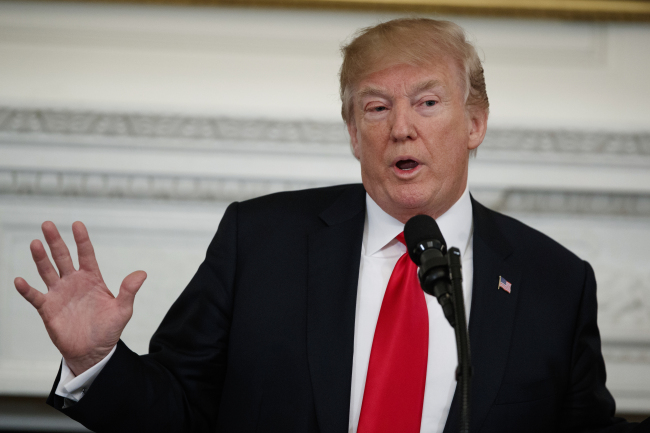South Korea has submitted a document hitting back at a claim by a US trade group representing its pharmaceutical industry that Korea’s drug pricing policies favor its domestic industry, ministries said Wednesday.
The document was prepared by the Ministry of Health and Welfare and submitted Thursday to the US Trade Representative, a US counterpart in the bilateral free trade deal, by the Ministry of Trade, Industry and Energy, according to a ministry spokesperson.
In the 36-page document submitted to the USTR, the government highlighted its “basic position that pricing and reimbursement policies in Korea treat both domestic and foreign pharmaceutical companies in a non-discriminatory manner.”
 |
(AP-Yonhap) |
The move marked the first step after the Pharmaceutical Research and Manufacturers of America (PhRMA), a trade union, urged the USTR to identify Korea as a “priority foreign country,” the worst classification among all designations, including “priority watch list” and “watch list.” If the designation is put in place, Korea will be subject to a US investigation into a possible breach of the trade agreement.
On Feb. 8, PhRMA put forward Korea, along with Canada and Malaysia, as a “priority foreign country” that had carried out “discriminatory” pricing policies against US drug firms in its Special 301 submission to the USTR.
“Korea’s drug pricing policies severely devalue US IP and favor Korea’s own pharmaceutical industry at the expense of US companies,” read the submission.
The US pharmaceutical trade union cited Korea’s pricing and reimbursement policies, under which a two-step process reduces medicine costs. Moreover, it argued a pricing policy revision in July 2016 by the Health Ministry and the Health Insurance Review & Assessment Service has set a higher entry bar for foreign firms.
But the document from Korea refuted the claim, saying a drug’s value will be appropriately recognized in its price, as long as it sees improvement in clinical usefulness and cost effectiveness.
Moreover, Korea called a direct comparison of drug prices by country “not appropriate,” citing “differences in health insurance systems, methods for drug reimbursement, and drug distribution systems, and a lack of transparency in foreign nations’ drug prices resulting from RSAs.”
“Differences in health insurance systems of Korea and the US should be considered,” read the document. “Since the National Health Insurance Service is the single payer of Korea’s national health insurance system, it is mindful of running health insurance within budget.”
Korea also cited the higher proportion of drug costs among health care costs, at 21.4 percent, compared to the average of 16.2 percent for the Organization for Economic Cooperation and Development.
PhRMA has claimed that Korea’s price control violates the Korea-US free trade agreement by failing to “appropriately recognize the value of the patented pharmaceutical product.”
The USTR may use suggestions, including the submission by PhRMA, as the basis of a Special 301 Report, an annual report designed to identify countries that “deny adequate and effective intellectual property rights” or “fair and equitable market access to (the) United States.”
PhRMA is made up of 38 pharmaceutical firms including Johnson & Johnson, Novartis, Pfizer and Bayer, among others.
By Son Ji-hyoung
(
consnow@heraldcorp.com)







![[Today’s K-pop] Blackpink’s Jennie, Lisa invited to Coachella as solo acts](http://res.heraldm.com/phpwas/restmb_idxmake.php?idx=644&simg=/content/image/2024/11/21/20241121050099_0.jpg)
